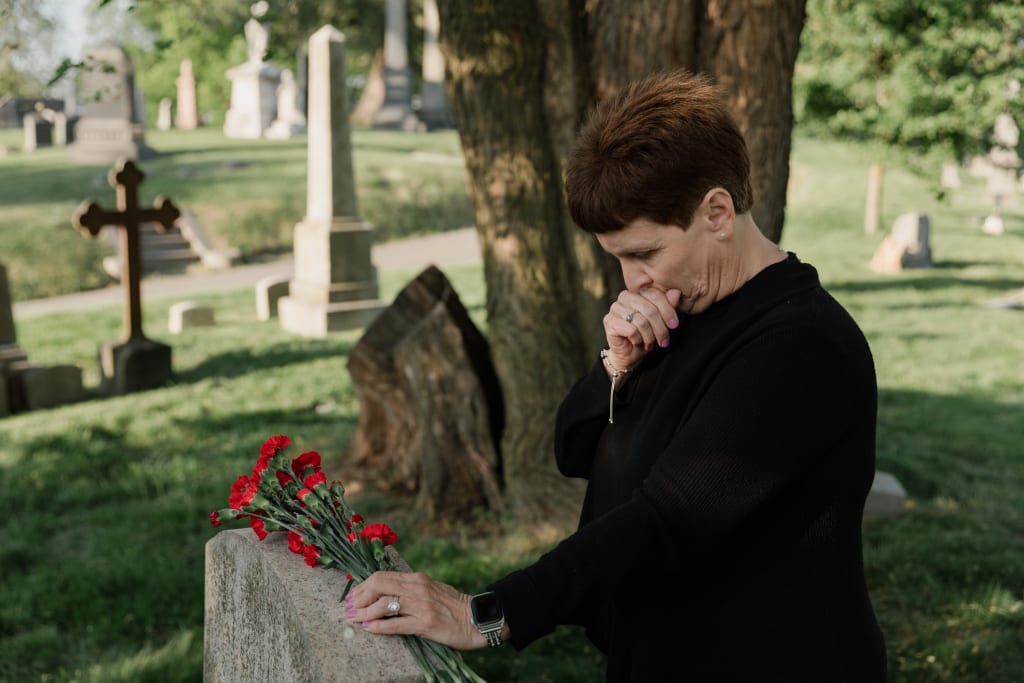Elizabeth Kubler-Ross and the Stages of Accepting Death
The classic theory on our grieving process

Based on field studies and interviews with over 200 terminal patients Elisabeth Kubler-Ross categorized the typical progression of psycho-emotional stages an individual experiences in the process of acknowledging and accepting death. Her theory outlines five distinct phases of coping with death, including:
1. Denial – In this initial stage, the individual experiences shock, disbelief and rejection of the idea of terminal illness and impending death. This represents a transitory defensive reaction to the distressing news which tends to pass as the individual gains more information about the condition, the typical course of illness and the practical arrangements that must be made.
2. Anger – This stage typically occurs when the previous defensive reaction begins to break down and the reality of the diagnosis becomes undeniable. Understanding the situation as real and unalterable, individuals now often express hostility and bitterness, sometimes projecting this onto those closest to them and even God. At this stage, individuals seek answers to the question, “Why me?” in relation to their circumstances. They lash out in anger, pain and frustration at the unfairness and desperation of their situation.
3. Bargaining – In this stage individuals attempt to empower themselves against the circumstances by entertaining the idea that they can in some way negotiate for a cure or an extension of their life. Often the individuals try to bargain or make deals with medical professional, or quite often God, exchanging promises of reform or specific behavior for relief, cure or more time.
4. Depression – This phase represents a realistic acknowledgement of the circumstances and the certainty of death, a beginning of the acceptance process and (for survivors) a step toward adapting to new circumstances. Kubler-Ross referred to this stage as preparatory grief, in which individuals deeply experience the losses associated with the impending death. Individuals may exhibit the typical behaviors associated with depression – crying, withdrawal, lethargy – but with their ruminations focused on the illness, death and the lost opportunities.
5. Acceptance – The final stage of this process is characterized by a sense of submission, peace and acquiescence. Individuals at this stage relinquish the anger and desperation of the previous stages and move toward a resolution of any unfinished business. In essence, individuals become ready to die at this phase and accept this fate without the resistance previously exhibited. (Kubler-Ross, 1969)

The progression of the above-mentioned stages will manifest differently, behaviorally speaking, based on the stage of development and maturity at which the event occurs. In childhood,for example, the denial stage may manifest in magical thinking and fantasy. This is expected behavior, given the child’s cognitive problem-solving level, lack of understanding of death and absence of experiential context in which to place this life event.
With regard to his/her own imminent death, a child may imagine a situation where, for example, angels or fairy godmothers bring him/her a magic cure, or some similar type of fantasy where the situation is remedied and the crisis resolved. Similarly, in response to the death of a parent or sibling, the young child in denial may create alternative explanations for their absence, such as trip or relocation to a special place. These fantasy concoctions are all part of the process of the young mind attempting to make sense of a novel and incomprehensible situation.
Conversely, the stage of depression, as experienced in a surviving middle-aged spouse, could manifest as prolonged sadness and an extended disinterest in activities which formerly brought enjoyment to the individual. The spouse may withdraw from people and experiences and give little attention to work, family and other areas of responsibility, even sometimes to the point of neglecting scheduled obligations and personal hygiene. In severe and prolonged cases of depression suicide may also be a risk.
Reference
Kubler-Ross, E. (1969). On death and dying. New York, NY: Macmillian.
About the Creator
Donna L. Roberts, PhD (Psych Pstuff)
Writer, psychologist and university professor researching media psych, generational studies, human and animal rights, and industrial/organizational psychology






Comments
There are no comments for this story
Be the first to respond and start the conversation.